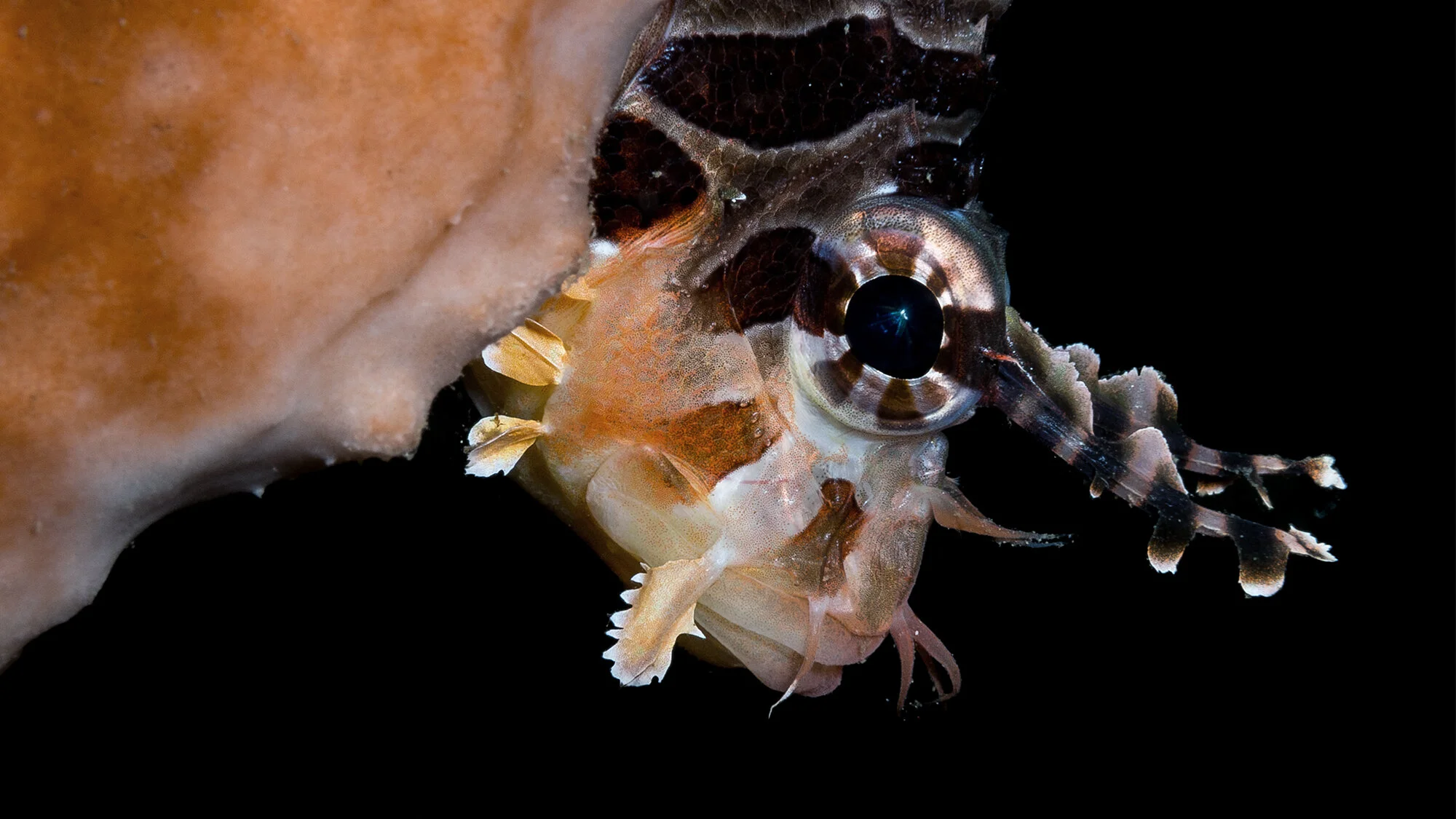YOUR WEEKLY BRIEFING FROM PARLEY
This image by Richard Barden / Coral Reef Image Bank. Header image by Wojtek Meczynski / Coral Reef Image Bank.
THE DEEP SEA
Can listening to deep-sea soundscapes help save the oceans? Acousticians believe this may be the quickest, cheapest way to monitor one of the most mysterious realms of the ocean. A database of deep-sea soundscapes could provide researchers with baseline understanding of healthy remote ecosystems, and singling out the sounds of communities or even individual species can inform scientists when populations are booming. Sound reigns supreme underwater, and propagates over long distances. Scientists have long listened in on the sounds of the oceans, but only recently have they turned to the deepest, darkest parts of the sea, where sound holds promise as a portal into an unknown world. Here, specialized creatures occupy habitats that would be fatal to surface-dwellers. The researchers’ goal is to eventually form a baseline of what a healthy, deep-sea ecosystem sounds like.
OCEAN PROTECTION
One of the most remote inhabited islands on Earth has banned bottom-trawling fishing, deep-sea mining and other harmful activities from its waters. In doing so, the community of 250 people on Tristan da Cunha, a territory of the UK, has created the world’s fourth largest marine protected area. The move will help safeguard the area’s wealth of wildlife, including sevengill sharks, the globally threatened yellow-nosed albatross and Atlantic petrel, rockhopper penguins and other birds that live there, and help towards the global goal of protecting 30% of the ocean by 2030. The new area is three times the size of Britain and now means the UK alone is protecting a full 1% of the world’s oceans. Lord Goldsmith, UK minister for the environment, described the announcement as a “huge environmental win” and a “critically important step in protecting the world’s biodiversity.”
ILLEGAL FISHING
The west African country of Ghana is experiencing one the region’s worst overfishing crises thanks to illegal and destructive fishing practices by industrial trawlers. Research shows illegal fishing is driving the small pelagic fish populations, the staple food of coastal communities in Ghana, to the brink of collapse. To combat this, scores of small-scale fishers are now fighting back using a newly developed smartphone app, called Dase. It allows people to record, log and report any alleged fishery crimes they spot out at sea. Evidence gathered via the app, developed by the Environmental Justice Foundation (EJF), an NGO working in Ghana and other west African countries to help combat overfishing, is used to catch and penalise perpetrators. So far, 100 small-scale fishers from local communities are active in the surveillance program along Ghana’s 350-mile coastline.
CORALS
Three species of black coral have been discovered on the deep seamounts and ridges in the mineral-rich Prime Crust Zone, which stretches from the Mariana Trench to the Hawaiian islands. China, Japan, Russia, and South Korea all hold exploration contracts to mine for metals including cobalt and nickel as they race to find new supplies of the key battery elements. The new coral species have been compared to towering redwood trees — not only are they slow-growing and long-lived, but also provide important habitat for many other species. A previous study found a black coral more than 4,250 years old. If the proposed deep-sea mining plan progresses, it could destroy these and other yet undiscovered species. The International Seabed Authority has yet to establish the rules for for deep-sea mining to go ahead.
MANGROVES
A new study has highlighted the “heavy lifting” that marine ecosystems, specifically mangrove forests, do to efficiently capture and store microplastics in their sediments. Researchers found that all nine core samples of sediments from mangrove forests had higher plastic concentration than surface waters. Mangrove forests capture and store microplastics in their soil beds, trapping the harmful material and storing the plastic for decades. The samples taken revealed a pattern of plastic sedimentation that aligns closely with the history of the global production of plastics, the researchers note. They also say further studies are needed to investigate the long-term impacts that microplastic accumulation may have on these vital marine ecosystems.
Share these stories and join the conversation on social media
IG @parley.tv | TW @parleyforoceans | FB @parleyfortheoceans
#StateOfTheOceans





















